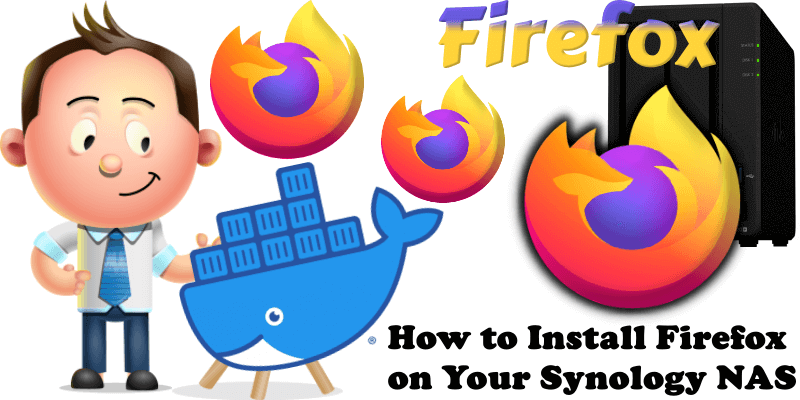
Firefox Browser, also known as Mozilla Firefox or simply Firefox, is a free and open-source web browser developed by Mozilla. Firefox uses the Gecko layout engine to render web pages, which implements current and anticipated web standards. Firefox is more than a browser. It’s a whole family of products designed to keep you safer and smarter online. In this step by step guide I will show you how to install Firefox on your Synology NAS using Docker. Note: You can also install Chromium, Opera or Mullvad Browser to surf the web using your NAS.
STEP 1
Please Support My work by Making a Donation.
STEP 2
Install Container Manager via Synology “Package Center”. If you run an older DSM version (under 7.2), search for Docker instead of Container Manager.
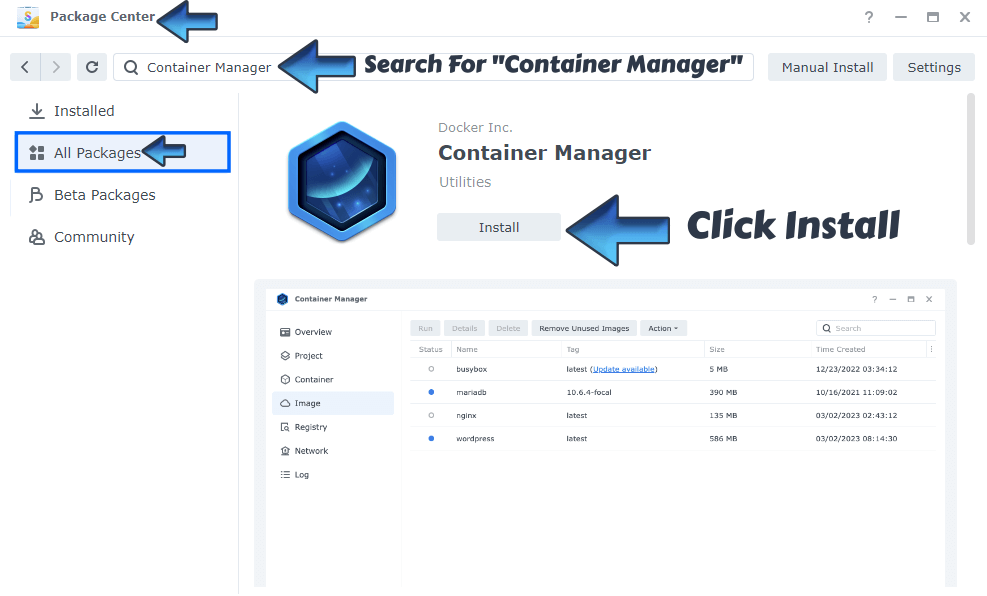
STEP 3
Go to File Station and open the docker folder. Inside the docker folder, create one new folder and name it firefox. Follow the instructions in the image below.
Note: Be careful to enter only lowercase, not uppercase letters.
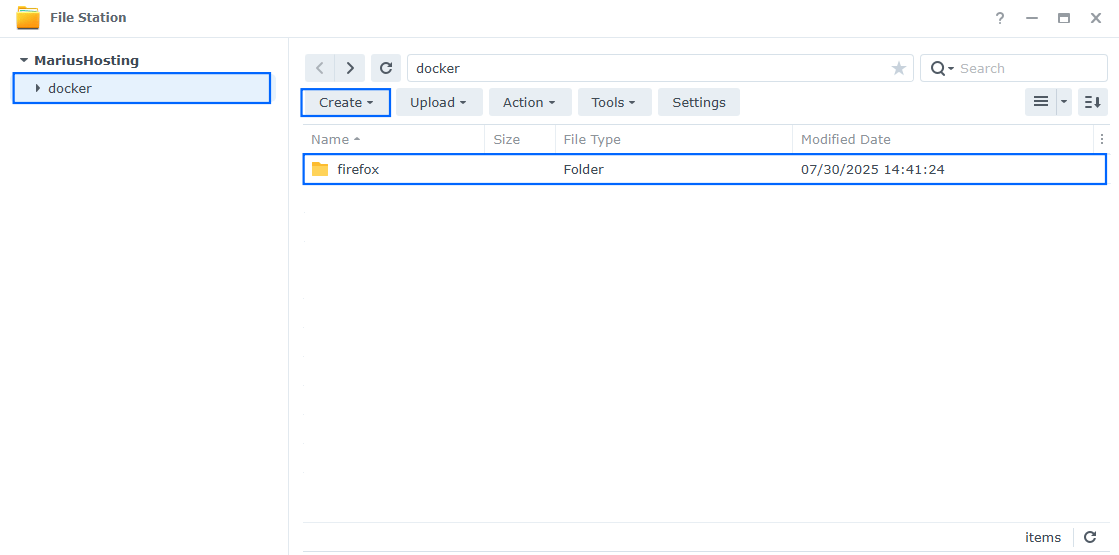
STEP 4
Go to Control Panel / Task Scheduler / Create / Scheduled Task / User-defined script. Follow the instructions in the image below.
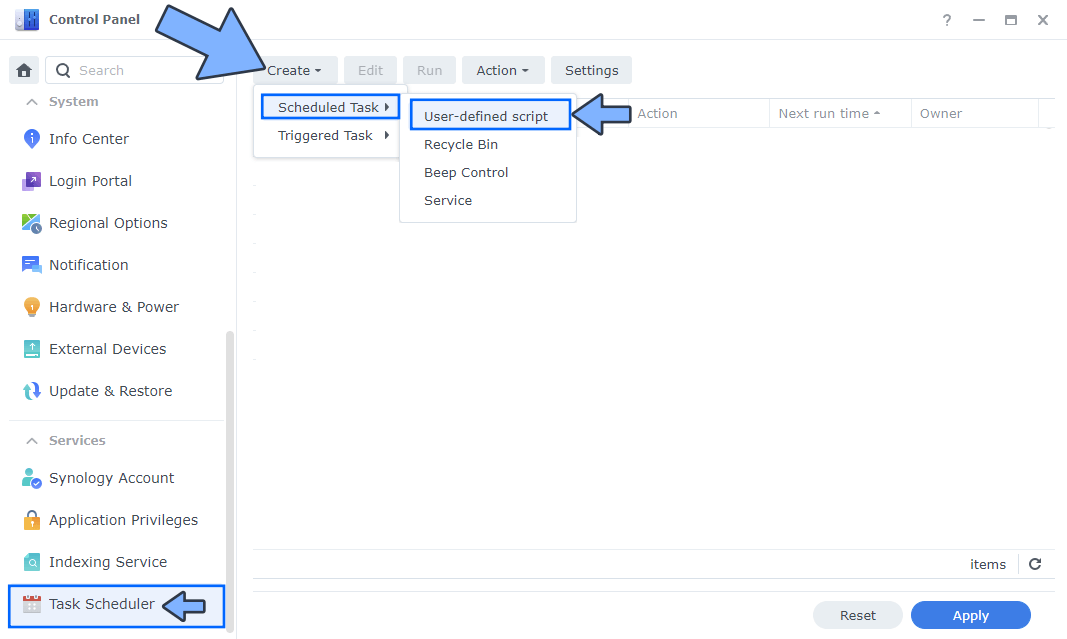
STEP 5
Once you click on User-defined script, a new window will open. Follow the instructions below:
- General: In the Task field type in “Install Firefox“. Uncheck “Enabled” option. Select root User.
- Schedule: Select Run on the following date then select “Do not repeat“.
- Task Settings: Check “Send run details by email“, add your email then copy paste the code below in the Run command area. After that click OK.
docker run -d --name=firefox \ -p 5812:3000 \ -p 5813:3001 \ -v /volume1/docker/firefox:/config \ -e PUID=1026 \ -e PGID=100 \ -e TZ=Europe/Bucharest \ -e CUSTOM_USER=marius \ -e PASSWORD=mariushosting \ --shm-size="5gb" \ --restart=always \ ghcr.io/linuxserver/firefox
Note: Before you paste the code above in the Run command area below, change the value numbers for PUID and PGID with your own values. (Follow my step by step guide on how to do this.)
Note: Before you paste the code above in the Run command area below, change the value for TZ (Select your current Time Zone from this list).
Note: Before you paste the code above in the Web editor area below, change the value for CUSTOM_USER. Type in your own username. marius is an example for a username.
Note: Before you paste the code above in the Web editor area below, change the value for PASSWORD. Type in your own password. mariushosting is an example for a password. ⚠️Warning: Do NOT use passwords with special characters.
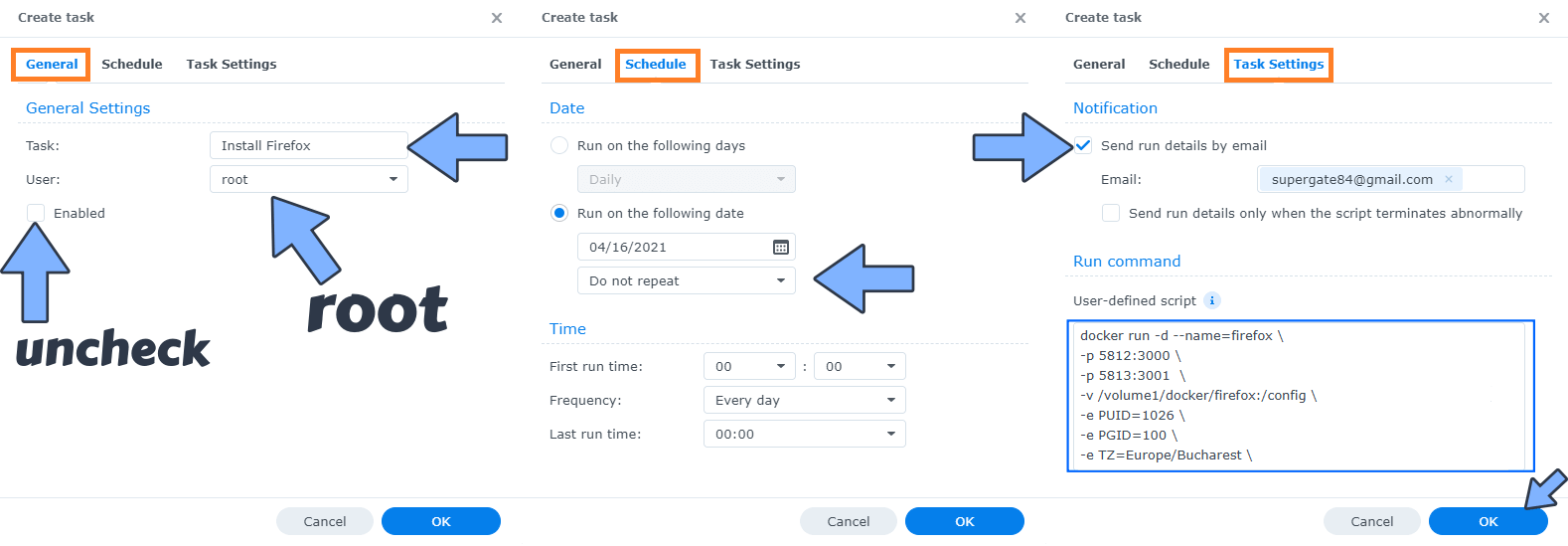
STEP 6
After you click OK on STEP 5 a new warning pop up window will open. Click OK.
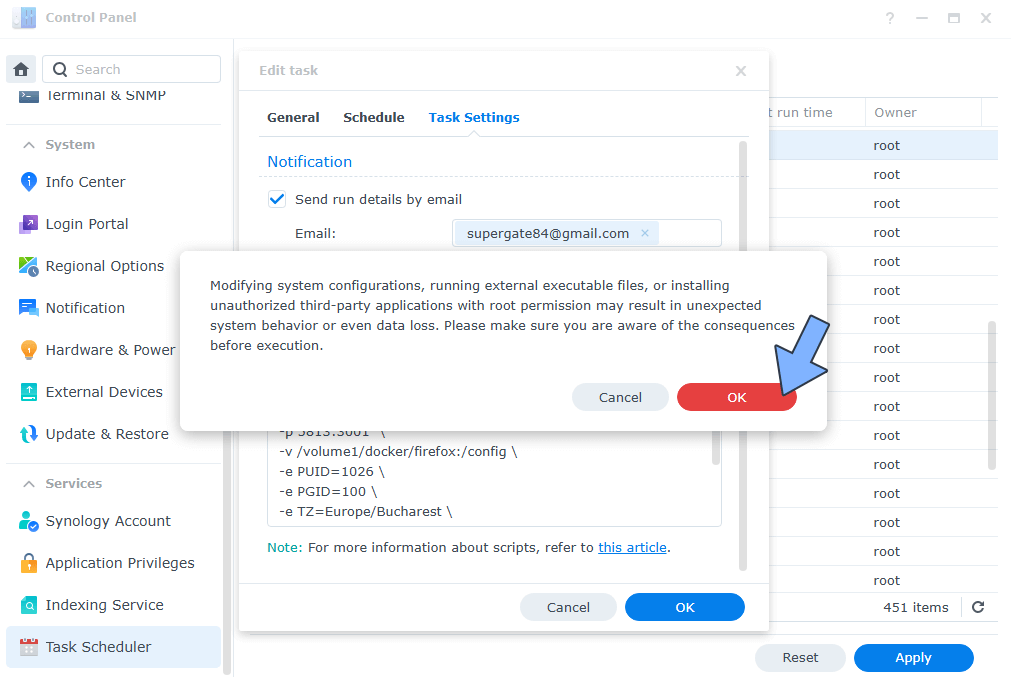
After you click OK, type in your DSM Password then click Submit. Follow the instructions in the image below.
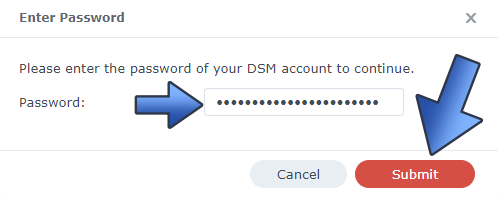
STEP 7
After you click Submit on STEP 6, select your “Install Firefox” Task then click the “Run” tab. You will be asked to run Install Firefox – click OK. Follow the instructions in the image below.
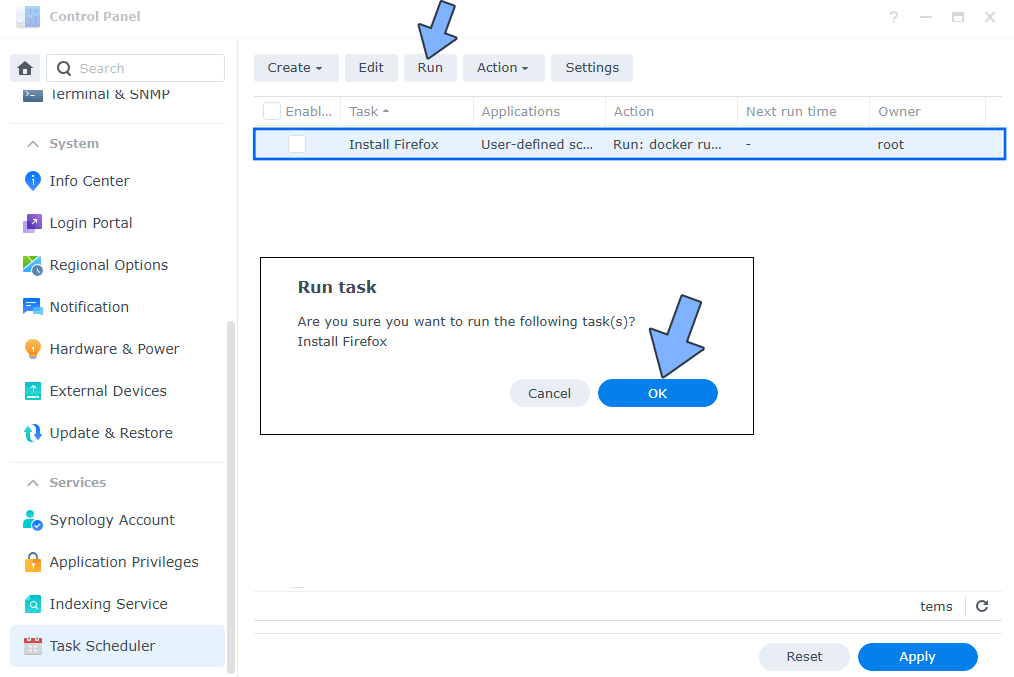
STEP 8
🟢Please Support My work by Making a Donation. Almost 99,9% of the people that install something using my guides forget to support my work, or just ignore STEP 1. I’ve been very honest about this aspect of my work since the beginning: I don’t run any ADS, I don’t require subscriptions, paid or otherwise, I don’t collect IPs, emails, and I don’t have any referral links from Amazon or other merchants. I also don’t have any POP-UPs or COOKIES. I have repeatedly been told over the years how much I have contributed to the community. It’s something I love doing and have been honest about my passion since the beginning. But I also Need The Community to Support me Back to be able to continue doing this work.
STEP 9
The installation process can take up to a few seconds/minutes. It will depend on your Internet speed connection. Now open your browser and type in https://Synology-ip-address:5813
Keep in mind, if you type in http:// this will not work. It’s mandatory to use https://
Click Advanced. Follow the instructions in the image below.
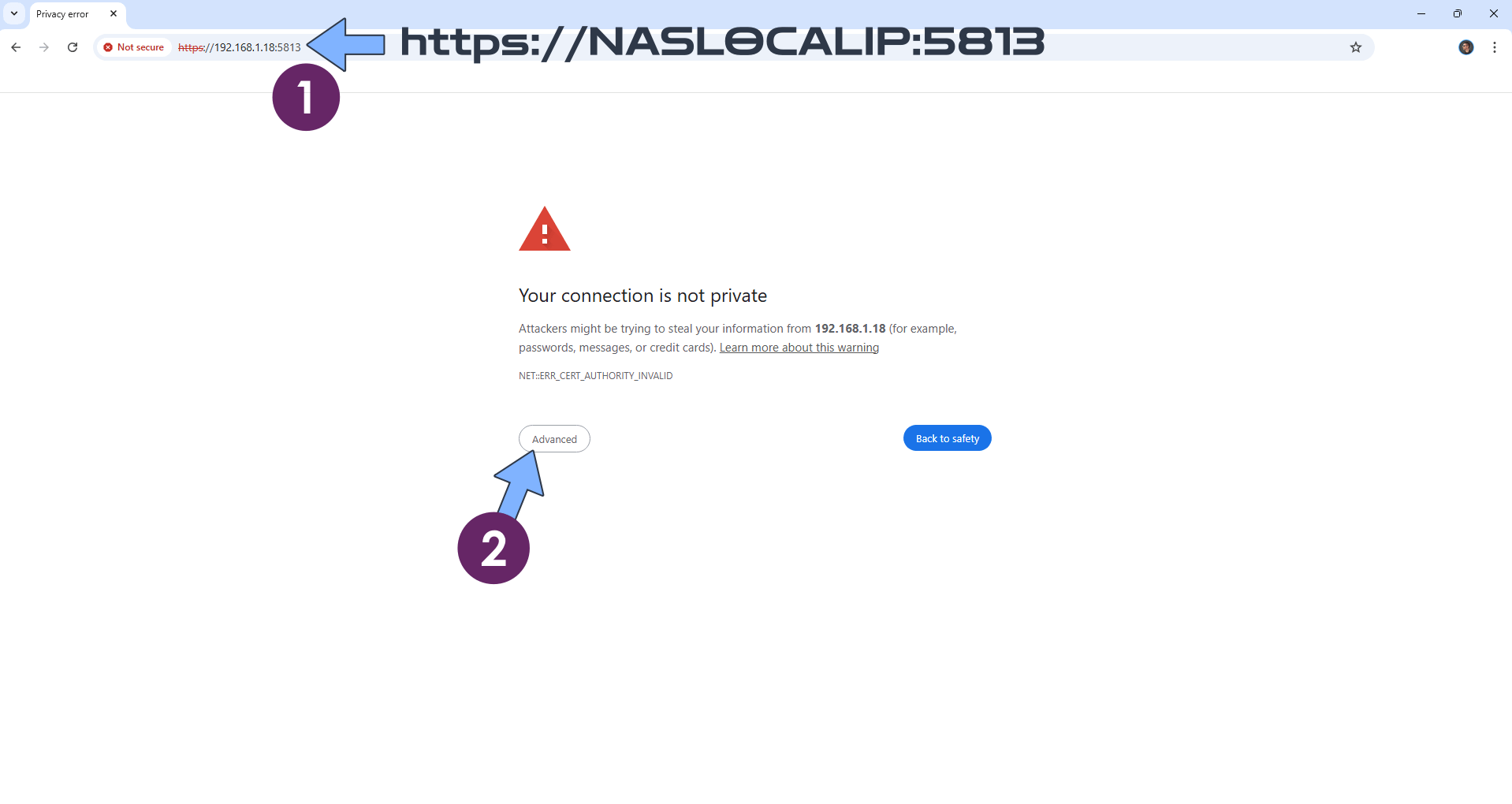
STEP 10
Click Proceed. Follow the instructions in the image below.
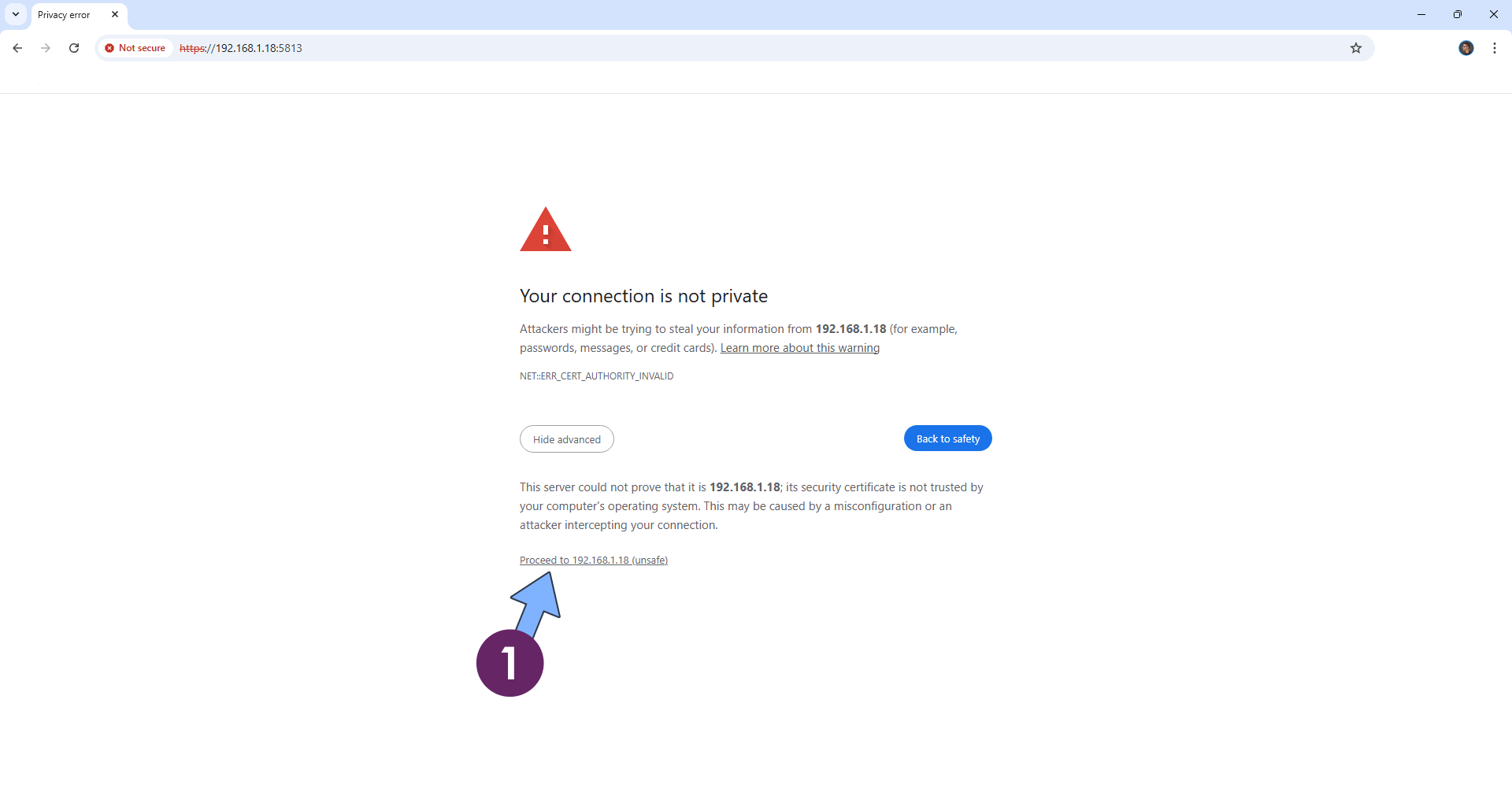
STEP 11
If everything goes right, you will see the Firefox Login page. Type in your own CUSTOM_USER and PASSWORD that you have previously created at STEP 5 then click Sign In. Follow the instructions in the image below.
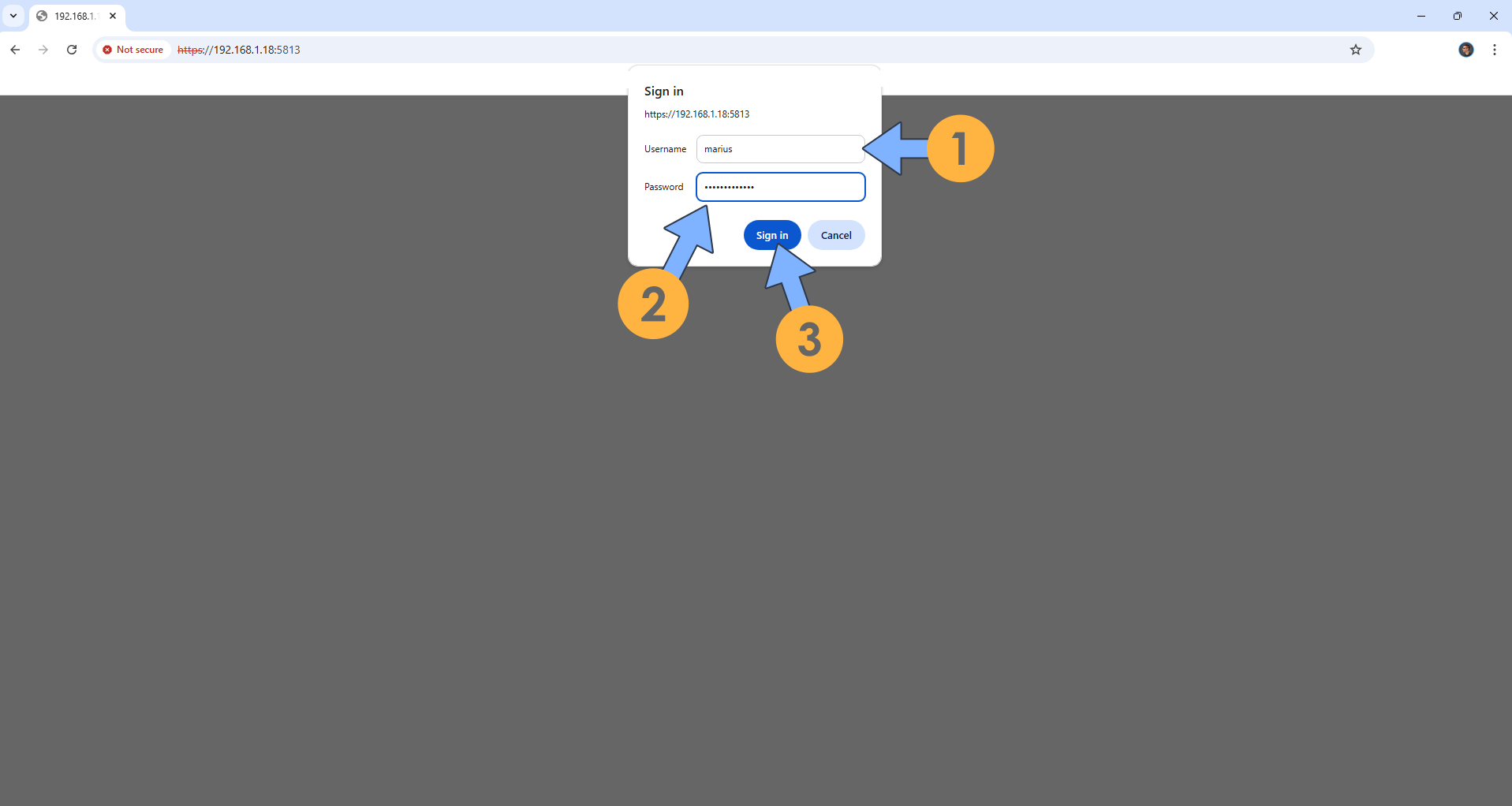
STEP 12
Search for something!
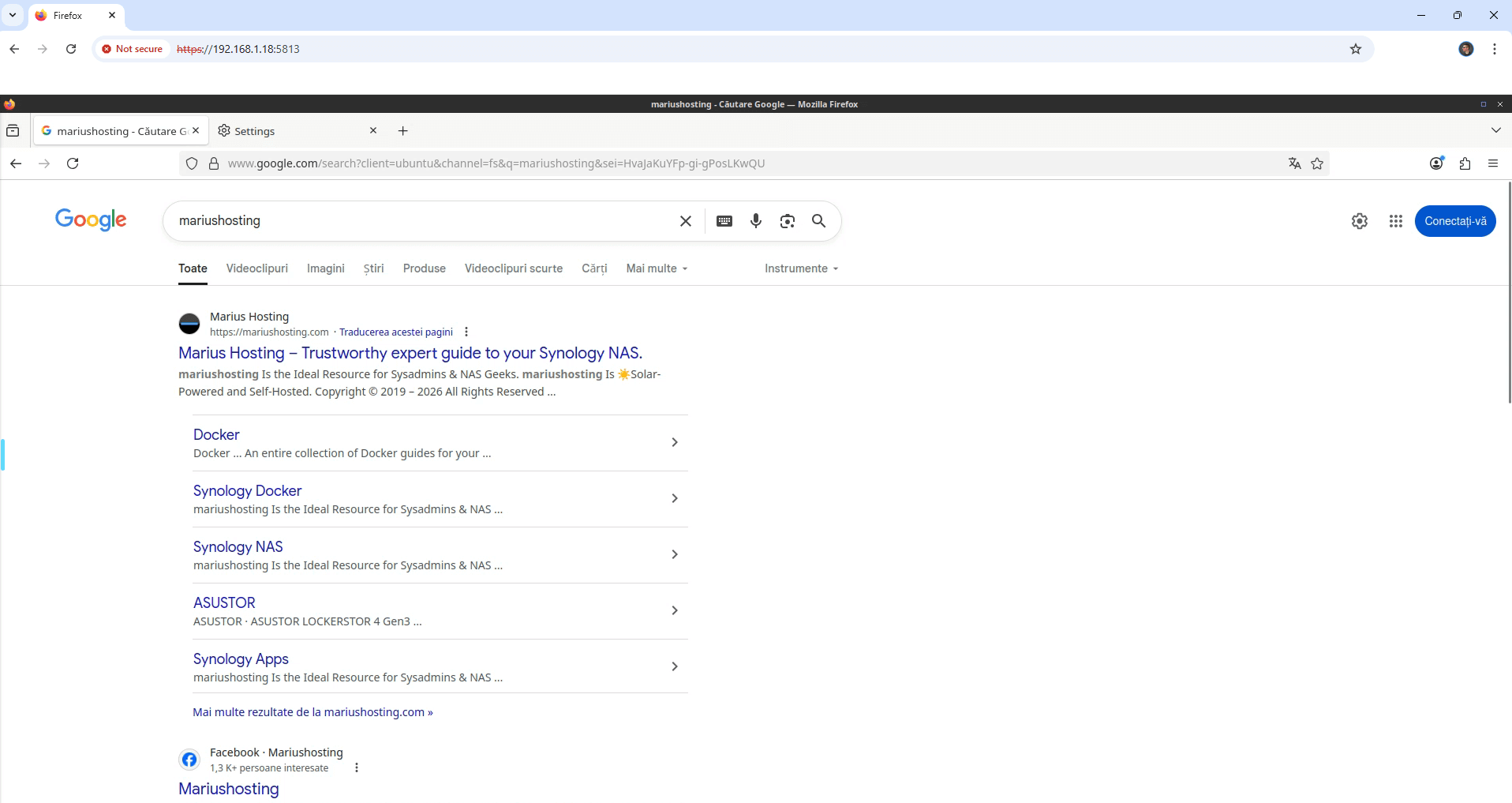
Enjoy Firefox!
Note: If you want to run the Firefox container over HTTPS, check How to Run Docker Containers Over HTTPS. In order to make Firefox work via HTTPS, it’s mandatory to activate WebSocket.
Note: at STEP 5, you should use different volume than volume1 if you use volume2 on your NAS. Replace volume1 with volume2.
Note: Can I run Docker on my Synology NAS? See the supported models.
Note: How to Back Up Docker Containers on your Synology NAS.
Note: Find out how to update Firefox container with the latest image.
Note: How to Free Disk Space on Your NAS if You Run Docker.
Note: How to Schedule Start & Stop For Docker Containers.
Note: How to Activate Email Notifications.
Note: How to Add Access Control Profile on Your NAS.
Note: How to Change Docker Containers Restart Policy.
Note: How to Use Docker Containers With VPN.
Note: Convert Docker Run Into Docker Compose.
Note: How to Clean Docker.
Note: How to Clean Docker Automatically.
Note: Best Practices When Using Docker and DDNS.
Note: Some Docker Containers Need WebSocket.
Note: Find out the Best NAS Models For Docker.
Note: Activate Gmail SMTP For Docker Containers.
This post was updated on Tuesday / February 3rd, 2026 at 11:07 AM
